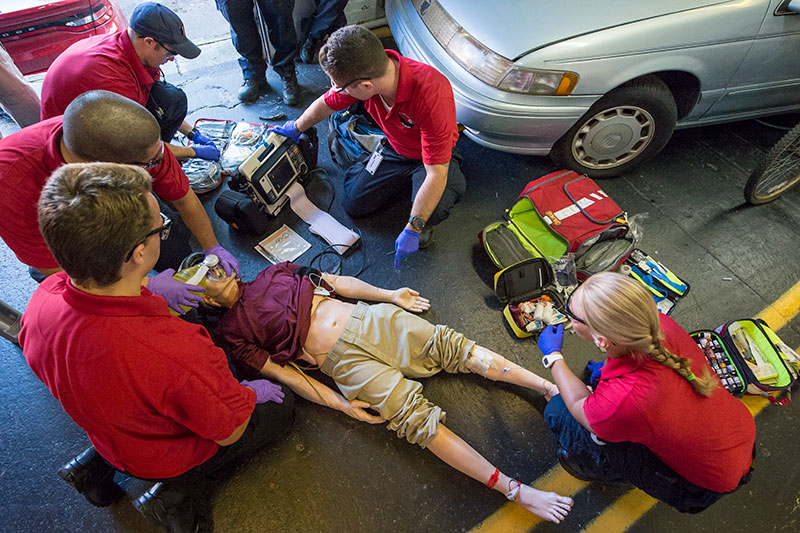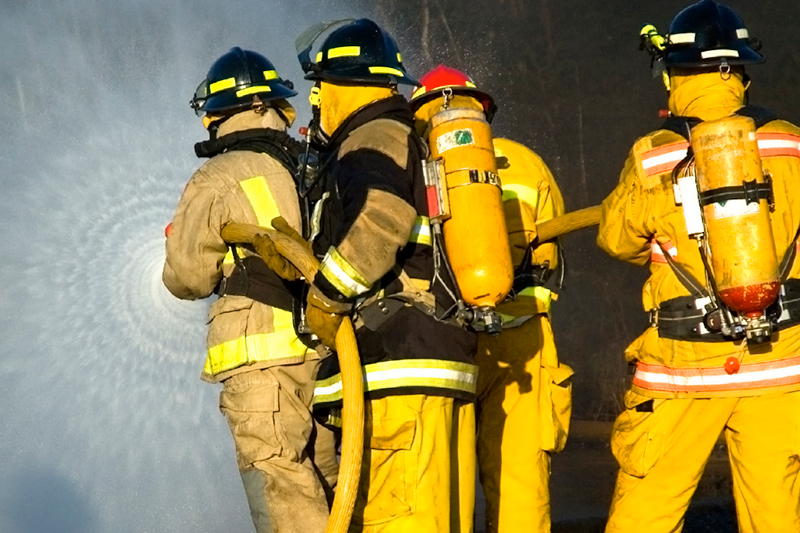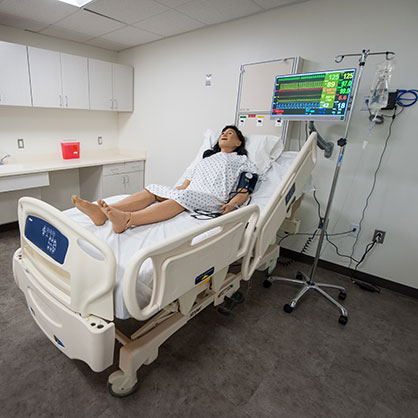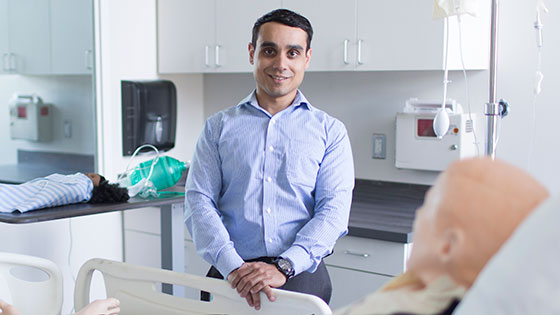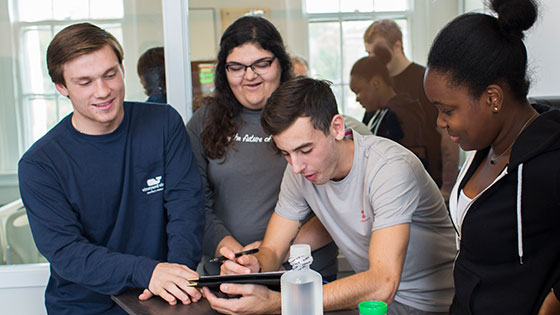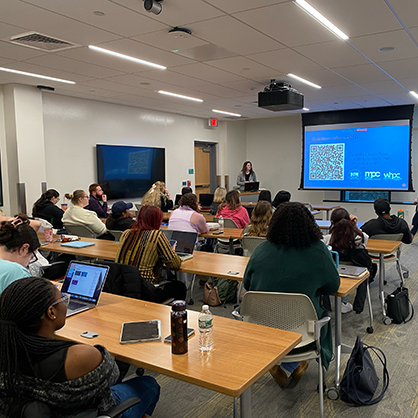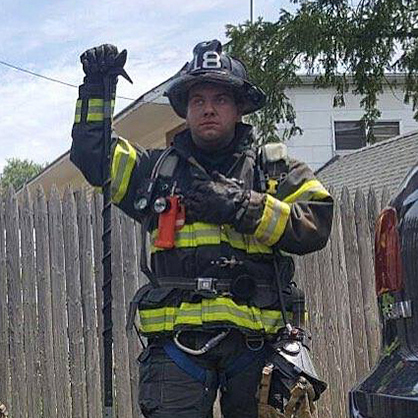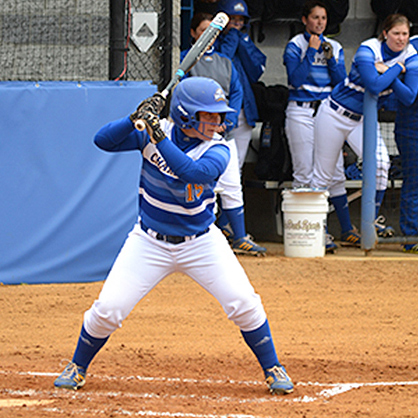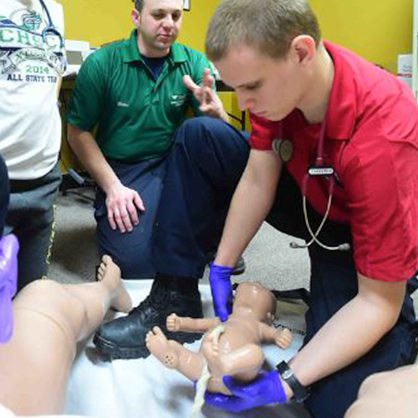Develop the skills that save lives
A paramedic has a level of knowledge, skill, and treatment capabilities that are significantly beyond those of an Emergency Medical Technician (EMT) and which can dramatically improve a patient’s outcome at the hospital. In response to the need for these uniquely trained emergency medical care professionals, the University of New Haven developed its paramedicine program. This program will prepare you to become a new breed of first responder – one who holds dual certification as both a firefighter and as a paramedic.
Hands-on learning will be a major part of your education. You’ll ride along with ambulance services and take patients’ vitals. You’ll practice doing chest compressions and starting IV lines on high-fidelity mannequins. You’ll become part of teams who care for patients in whatever medical emergency unfolds. The goal of the paramedicine program is to make your education as real-world as it gets.
Through this program, offered in partnership with Hartford Healthcare, you will also:
- Become an Emergency Medical Technician (EMT)
- Gain more than 700 hours of clinical and internship experience through multiple models of EMS services, including hospital-based and fire-based
- Expand your knowledge through classes in anatomy and physiology virtual reality experiences
- Become eligible to sit for the National Registry Paramedic exam at the completion of your studies
- Have a chance to join the Pre-Health Professions (PHP) Scholars Program, which can serve as a launching pad for pursuing a career or further study in healthcare
Please be aware, during the clinical rotations students will be working within a healthcare environment, which has the potential for exposure to airborne and bloodborne pathogens. Each student is responsible for maintaining healthcare insurance which can cover treatment and follow-up care in the event of an exposure. In addition to the vaccination and medical requirements, facial hair is not permitted in clinical nor field settings, as it will interfere with proper fitting of respiratory protection.
Program Cost
Academic tuition and fees are based on enrollment status and number of credit hours. Lab fees are used to support courses requiring specialized materials and/or a specialized learning environment.
In addition to tuition and fees, students are responsible for the cost of uniforms, supplies (stethoscope), and books. Additionally, students are responsible for transportation to/from clinical and internship sties as well as any cost associated with meeting health/vaccination requirements for clinical and internship experiences. Students are also responsible for the costs associated with state and national testing and maintenance of associated licenses and certifications.
+ Read More
View Course Brochure
